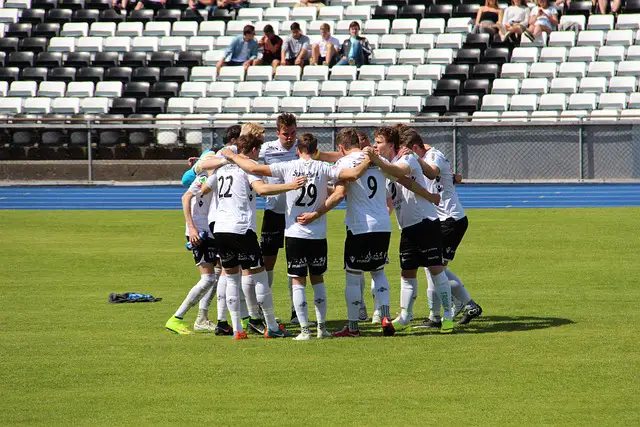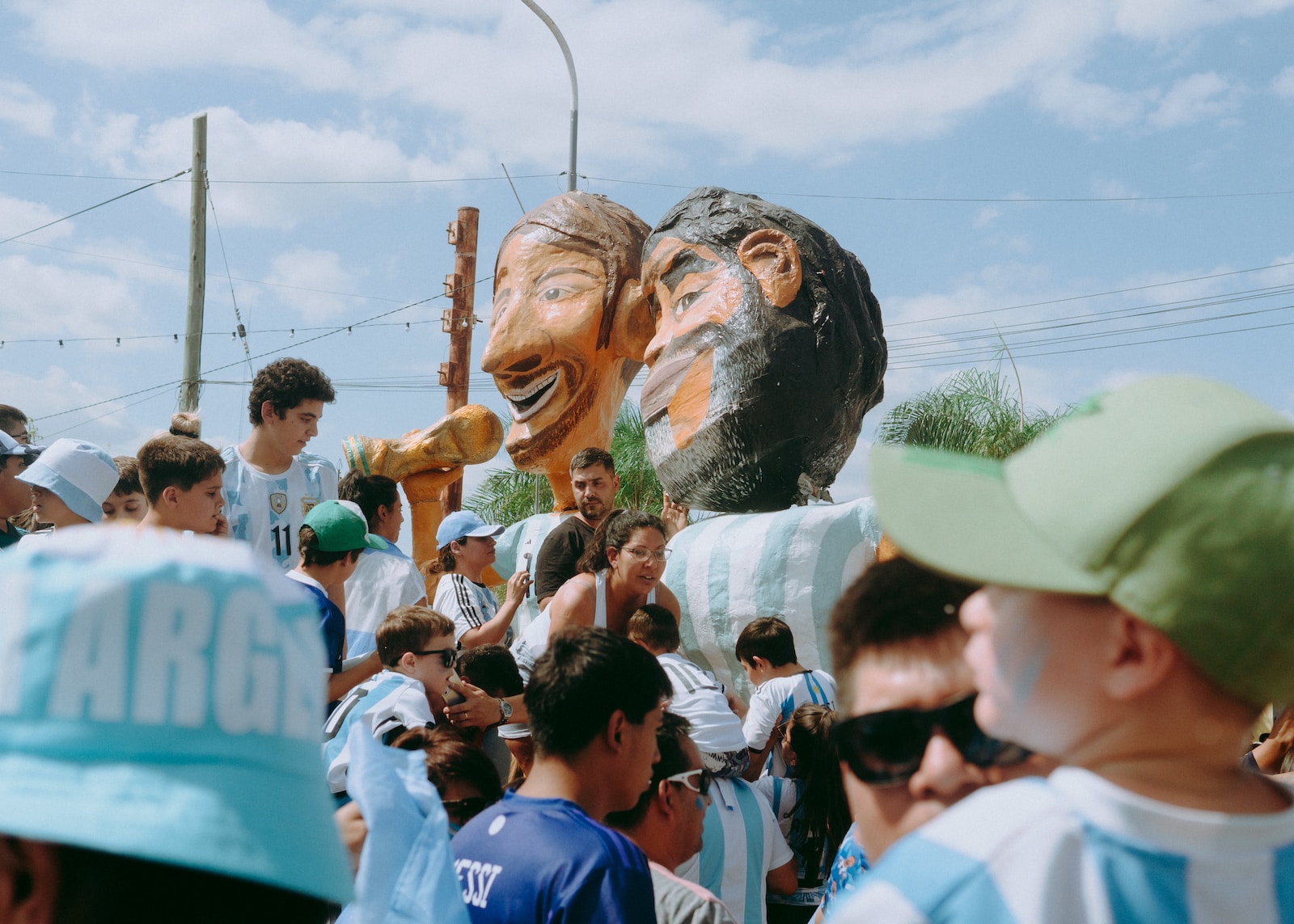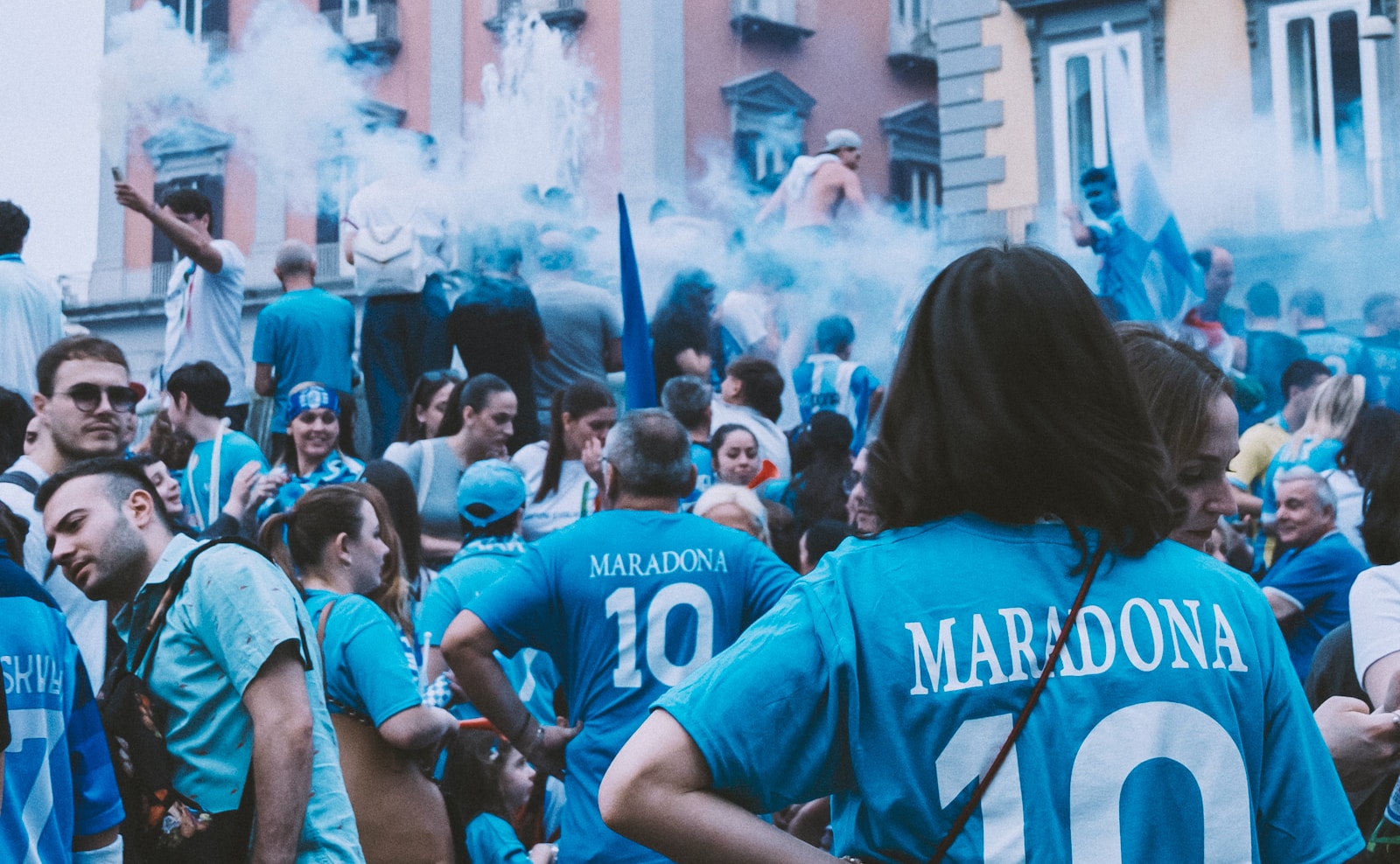Wonder what the greatest soccer matches ever played are?
Well, get ready to be blown away by the sheer intensity, skill, and drama that these games have to offer. From legendary World Cup finals to unforgettable club rivalries, these matches have left an indelible mark on the sport.
Whether you’re a die-hard fan or just a casual observer, these historic showdowns are guaranteed to leave you on the edge of your seat, eagerly cheering for your favorite team. So, let’s dive into the heart-stopping moments, jaw-dropping goals, and nail-biting finishes that make these matches stand out amongst the rest.

1. The Miracle of Bern
The rivalry between West Germany and Hungary
Back in the 1950s, West Germany and Hungary were two of the dominant forces in international football. These two countries had established a fierce rivalry as they battled it out on the pitch. Hungary was recognized as the world’s top team, boasting a formidable squad known as the “Mighty Magyars.” Led by Ferenc Puskás and Nándor Hidegkuti, Hungary was unbeaten for an astonishing 32 matches.
The 1954 FIFA World Cup final
The stage was set for an epic clash when West Germany and Hungary met in the final of the 1954 FIFA World Cup. Hungary, the clear favorites, were expected to secure their crown as the undisputed champions of the sport. Meanwhile, West Germany was determined to defy the odds and claim their first-ever World Cup title.
West Germany’s stunning comeback
In one of the most astonishing turnarounds in football history, West Germany orchestrated a remarkable comeback. Hungary took an early lead, showcasing their superior skills and dominance. However, this West German side, with their unwavering determination, fought back and equalized, stunning the fans in attendance. Despite Hungary regaining the lead, it was West Germany who had the last laugh, finding the net twice in quick succession to seal their 3-2 victory. It was a miraculous triumph, and the events of that day soon earned the moniker “The Miracle of Bern.”
Impact on German football
The Miracle of Bern had a profound impact on German football. It not only brought home the World Cup, but it also instilled a sense of national pride and unity. The unexpected victory against the powerful Hungarian team ignited a passion for the sport within the country. It marked the beginning of a new era for German football, inspiring future generations of players and fans. The success of West Germany in 1954 laid the foundation for the country’s future triumphs, including their subsequent World Cup victories in 1974, 1990, and 2014.
2. The Battle of Santiago
Chile vs Italy
The Battle of Santiago, an infamous match that took place during the 1962 FIFA World Cup, saw Chile face off against Italy. Both teams were known for their physical style of play, setting the stage for a highly intense and heated encounter.
Violence and controversy
The match lived up to its reputation, with numerous violent and reckless challenges from both sides. Players engaged in aggressive clashes, disregarding fair play and sporting conduct. The referee struggled to maintain control over the explosive situation, allowing the match to descend into chaos. The scenes witnessed during the Battle of Santiago were a stark contrast to the spirit of camaraderie and fair play that football aimed to promote.
Infamous red card
One particular incident during the match stands out as a symbol of the extreme hostility on display that day. Giorgio Ferrini, an Italian player, committed a violent and dangerous tackle, leaving Honorino Landa, a Chilean player, writhing in pain on the pitch. The referee eventually showed Ferrini a red card, signaling his expulsion from the game. This incident, along with the other acts of aggression witnessed during the match, left a lasting mark on football history.
Legacy of the match
The Battle of Santiago had a significant impact on football regulations and heightened the focus on player conduct. FIFA, the governing body of international football, recognized the need for stricter disciplinary measures to prevent similar episodes in the future. The match served as a turning point in the discussion surrounding fair play and the responsibility of players to uphold the integrity of the game. It led to the implementation of stricter rules and regulations to maintain order on the pitch and prioritize player safety.
3. The 1970 FIFA World Cup Final
Brazil vs Italy
The 1970 FIFA World Cup final between Brazil and Italy was a match that showcased the pinnacle of attacking football. Brazil, led by the iconic Pelé, showcased their trademark style of free-flowing attacking football, while Italy was known for their defensive solidity and tactical prowess.
The pinnacle of attacking football
The 1970 World Cup final served as an exhibition of attacking prowess and skill. Brazil mesmerized the world with their superb ball control, intricate passing, and artistry on the pitch. Each Brazilian player seemed to possess an innate understanding of the game, seamlessly combining individual brilliance with collective teamwork. The match was a testament to the beauty and joy of football, encapsulating the essence of the sport in its purest form.
Carlos Alberto’s iconic goal
The defining moment of the final came in the 86th minute, when Carlos Alberto unleashed a thunderous strike into the net. It was the culmination of a breathtaking team move, involving several Brazilian players. Pelé provided a delicate pass to Alberto, who rifled the ball into the bottom corner, sealing Brazil’s victory. This moment has since been etched into football history as one of the most iconic goals ever scored.
The greatest team of all time
The Brazilian squad that triumphed in the 1970 World Cup final is widely regarded as one of the greatest teams of all time. Their style of play, known as “samba football,” revolutionized the game, inspiring future generations of players. The 1970 Brazilian team showcased the beauty and elegance that football could achieve, leaving an indelible mark on the sport’s history.
4. The Maracanazo
Uruguay vs Brazil
The Maracanazo refers to the 1950 FIFA World Cup final between Uruguay and Brazil. The match took place at the Maracanã Stadium in Rio de Janeiro, Brazil, and marked a pivotal moment in football history.
Unexpected defeat for Brazil
Brazil entered the final as the overwhelming favorites, boosted by the home advantage and a star-studded lineup. The nation believed victory was already guaranteed, leading to an air of complacency. However, Uruguay had other plans. Against all odds, Uruguay emerged victorious, delivering a devastating blow to the host nation’s hopes and dreams. The 2-1 defeat for Brazil sent shockwaves through the footballing world.
Maracanã Stadium’s silence
One of the most striking images from the Maracanazo was the silence that engulfed the Maracanã Stadium following Uruguay’s winning goal in the final minutes. The euphoria and jubilation expected from the home crowd were replaced by stunned silence and disbelief. The deafening silence spoke volumes, encapsulating the despair and heartbreak felt by an entire nation.
Symbolism and impact
The Maracanazo had far-reaching implications for Brazilian football. It served as a wake-up call, highlighting the need for self-reflection and improvement within the sport. The defeat prompted a reassessment of the Brazilian footballing approach, sparking a renewed focus on technical development, teamwork, and mental strength. The Maracanazo acted as a catalyst for change, leading to Brazil’s subsequent successes on the international stage and the emergence of a new generation of talented footballers.
5. The Miracle of Istanbul
AC Milan vs Liverpool
The Miracle of Istanbul refers to the remarkable UEFA Champions League final between AC Milan and Liverpool in 2005. The match took place at the Atatürk Olympic Stadium in Istanbul, Turkey.
Liverpool’s extraordinary comeback
At halftime, Liverpool found themselves in a seemingly insurmountable position. AC Milan had stormed to a 3-0 lead, dominating the first half with their superior skill and precision. However, what followed after the halftime break can only be described as a footballing miracle. Liverpool mounted an extraordinary comeback, scoring three goals in a span of just six minutes to level the match. The Reds displayed a never-say-die attitude, overpowering their Italian opponents.
The impact of Steven Gerrard
Steven Gerrard, the Liverpool captain, played a pivotal role in the Miracle of Istanbul. His leadership, determination, and never-ending belief rallied his teammates and galvanized Liverpool’s revival. Gerrard scored a crucial goal during the comeback, setting the stage for one of the most dramatic turnarounds in football history.
The greatest UEFA Champions League final
The 2005 UEFA Champions League final between AC Milan and Liverpool is widely regarded as the greatest final in the history of the competition. The sheer intensity, drama, and unpredictability of the match captivated fans around the world. It showcased the spirit of resilience, the magic of comebacks, and the sheer unpredictability that makes football such a beloved sport.
6. The Hand of God
Argentina vs England
The Hand of God refers to an infamous goal scored by Diego Maradona during the 1986 FIFA World Cup quarterfinal match between Argentina and England. The match held special significance due to the political tensions between the two nations following the Falklands War.
Diego Maradona’s infamous goal
In the 51st minute of the match, Maradona punched the ball into the net with his left hand, avoiding detection by the referee. This act of blatant cheating and deception became known as the Hand of God goal. Maradona later famously described the goal as “a little with the head of Maradona and a little with the hand of God.” The incident sparked controversy and debate, forever associating Maradona’s name with this moment of audacious cheating.
Controversy and debate
The Hand of God goal generated intense controversy and divided opinions among football fans worldwide. Some hailed it as a moment of genius and cunning from Maradona, while others condemned it as an unjust and unethical act. The incident prompted discussions about fair play, refereeing decisions, and the need for improved technology to ensure the accuracy of crucial decisions.

Maradona’s unparalleled genius
Regardless of the controversy surrounding the Hand of God goal, Diego Maradona’s performance throughout the 1986 World Cup showcased his unparalleled genius as a footballer. The Argentinian maestro single-handedly led his nation to victory, inspiring his teammates and captivating the world with his skill, technique, and ability to seize crucial moments. Despite the controversy surrounding the Hand of God, Maradona’s impact on the tournament and his legacy within the sport remain undeniable.
7. The Battle of Old Trafford
Manchester United vs Arsenal
The Battle of Old Trafford refers to a heated match played between Manchester United and Arsenal on September 21, 2003, at Old Trafford. The encounter was characterized by an intense rivalry between the two clubs and their respective managers, Sir Alex Ferguson and Arsène Wenger.
Intense rivalry between Ferguson and Wenger
The clash between Ferguson’s Manchester United and Wenger’s Arsenal represented one of the fiercest managerial rivalries in football. The two legendary managers never hesitated to engage in verbal spats and psychological warfare, heightening the intensity of their encounters on the pitch. Their clash of personalities and tactical approaches captivated fans and the media, adding an extra layer of spice to matches between the two clubs.
Keane vs Vieira confrontation
One of the most iconic moments from the Battle of Old Trafford occurred during the pre-match confrontation between Manchester United’s Roy Keane and Arsenal’s Patrick Vieira. The two fiery midfielders clashed in the tunnel, exchanging heated words and pushing each other. Their confrontation symbolized the intensity and ferocity of the rivalry between their respective teams.
Dramatic match and aftermath
The match itself proved to be as dramatic as expected, with several controversial incidents and high emotions on display. The encounter ended in a goalless draw, but the aftermath was far from peaceful. Both teams engaged in a mass brawl, leading to several players receiving red cards. The Battle of Old Trafford exemplified the fierce rivalry between Manchester United and Arsenal, serving as a testament to the passion and determination that fuels top-level football.
8. The 1986 FIFA World Cup Quarterfinal
Argentina vs England
The 1986 FIFA World Cup quarterfinal between Argentina and England is remembered for one man’s exceptional performance – Diego Maradona. The match held added significance due to the historical tensions between the two nations following the Falklands War.
Maradona’s ‘Goal of the Century’
Diego Maradona produced what is widely considered one of the greatest goals ever scored on the World Cup stage. In the 54th minute, Maradona embarked on a mesmerizing solo run, dribbling past five England players before slotting the ball into the net. The goal showcased Maradona’s extraordinary skill, balance, and sheer audacity, earning it the moniker “Goal of the Century.”
Maradona’s second infamous goal
In the same match, Maradona also scored his infamous Hand of God goal, which has been previously discussed in the article. The combination of Maradona’s brilliance and controversy in a single match has cemented this quarterfinal clash between Argentina and England as one of the most memorable encounters in World Cup history.
Magical performance by Maradona
Diego Maradona’s performance in the 1986 World Cup quarterfinal exemplifies his status as one of the greatest footballers of all time. The Argentinian maestro’s exceptional skill, vision, and leadership propelled his nation to victory. His natural talent and ability to single-handedly influence matches set him apart from his peers, leaving an indelible mark on football history.
9. The 1999 UEFA Champions League Final

Violence and chaos on the pitch
Manchester United vs Bayern Munich
The 1999 UEFA Champions League final was a dramatic showdown between two footballing giants, Manchester United and Bayern Munich. The match took place at the Nou Camp in Barcelona, Spain, and is remembered as one of the most thrilling finals in Champions League history.
Late goals secure United’s victory
With only minutes remaining, Bayern Munich appeared destined to claim the trophy after taking a 1-0 lead. However, in a stunning turn of events, Manchester United mounted an incredible comeback in injury time. Teddy Sheringham equalized in the 91st minute, followed by Ole Gunnar Solskjaer scoring the winner in the 93rd minute. The late goals secured a remarkable victory for Manchester United and left Bayern Munich in a state of disbelief.
Ole Gunnar Solskjaer’s winner
Ole Gunnar Solskjaer’s goal in the dying seconds of the match will forever be etched into Manchester United’s folklore. The Norwegian striker, who came on as a substitute, displayed exceptional poise and composure to guide the ball into the net, sparking euphoria among the United fans and devastating the Bayern Munich players and supporters.
Dramatic climax and treble-winning season
The 1999 Champions League final epitomized the never-say-die spirit of Sir Alex Ferguson’s Manchester United. The triumph secured the club’s unprecedented treble, as they had already won the Premier League and FA Cup that season. It was a fitting climax to a remarkable campaign and symbolized the indomitable spirit and resilience of the Manchester United team of that era.
10. The Battle of Santiago de Chile
Chile vs Italy
The Battle of Santiago de Chile refers to a highly contentious match between Chile and Italy during the 1962 FIFA World Cup. The encounter, held in the Chilean capital, Santiago, was marred by extreme violence and chaos.
The match quickly descended into a display of physical aggression, with players from both sides engaging in vicious confrontations. The atmosphere was hostile, fueling violent clashes and reckless challenges. The referee struggled to control the mayhem and maintain order on the pitch. The spectacle unfolding in Santiago shocked the world, as the violence and disregard for fair play reached unprecedented levels.
Significance for FIFA and regulations
The Battle of Santiago de Chile served as a catalyst for FIFA to revisit and enforce stricter regulations concerning player conduct and disciplinary measures. The unruly behavior witnessed during the match highlighted the need for football’s governing bodies to take swift action in maintaining the integrity and image of the sport. The incident prompted the introduction of harsher penalties for violent conduct and the strengthening of officiating standards.
Turning point for football behavior
The Battle of Santiago de Chile stands as a turning point in the discussion surrounding acceptable behavior in football. The match exposed the darker side of the sport, prompting a collective reflection on the values and principles that guided players’ actions on the pitch. It forced football authorities, fans, and players to reevaluate their attitudes towards fair play and sportsmanship. The legacy of this tumultuous match played a significant role in shaping football behavior and the subsequent efforts to promote a more respectful and dignified game.
In conclusion, these ten matches have left an indelible mark on football history. From stunning comebacks to contentious moments and extraordinary feats of skill, these encounters have captivated fans and inspired countless discussions. They serve as a reminder of the beauty, drama, and unpredictability that make football the world’s most beloved sport. These matches have transcended their individual importance to become iconic moments etched into the collective memory of football enthusiasts worldwide.


